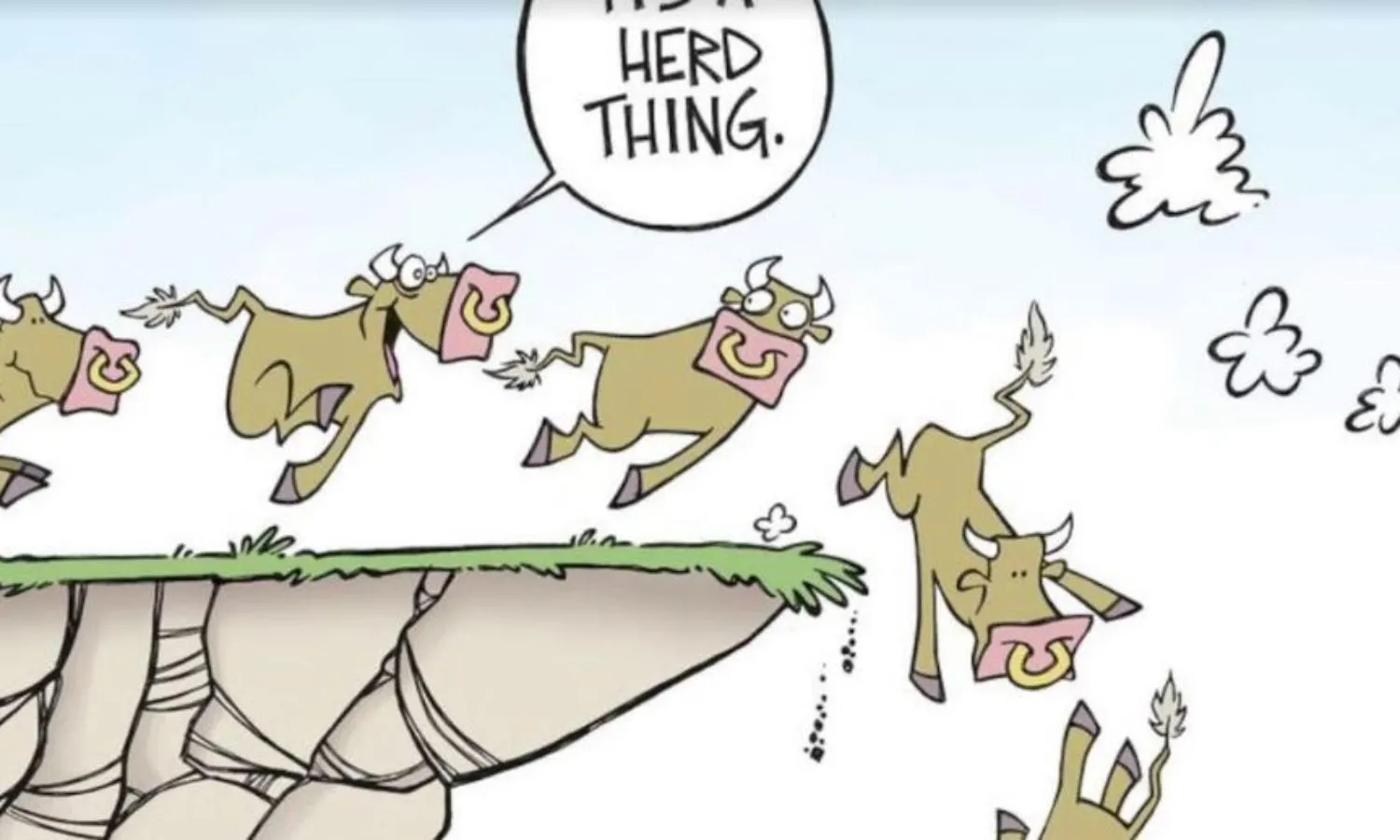How to Fight Herd Mentality and Think for Ourselves
Truth and accuracy are not the only things that matter to the human mind

Lately, people tend to believe false and inaccurate ideas rather than the truth. Facts have no meaning. People tend to follow the flock without understanding a reasonably accurate view of the goings on around them. Also, if you are not part of the flock and your model of reality is wildly different from the actual world, then you struggle to take effective actions each day.
Truth and accuracy are not the only things that matter to the human mind. People also seem to have a deep desire to belong and so ‘following the flock’ goes hand in hand. The ‘herd’ mentality is at its strongest these days. Understanding the truth of a situation is not important, but remaining part of a certain clan is. Naturally there arises a situation of conflict.
People are embraced or condemned according to their beliefs, so therefore people tend to hold beliefs that bring the belief-holder the greatest number of allies, protectors, or disciples, rather than beliefs that are most likely to be true. Unfortunately, people don't always believe things because they are correct. The current turbulent times we see in our country is promoting a scenario where most things being shared are factually false but people blindly follow the group selecting them rather than facts. Convincing someone to change their mind is really the process of convincing them to change their coterie. If they abandon their beliefs, they run the risk of losing social ties and that’s why it is tough to be reasonable with such a lot.
Prejudice and ethnic strife feed off abstraction. Facts don't change our minds. Friendship does. If someone you know, like, and trust believes a radical idea, you are more likely to give it merit, weight, or consideration. But if someone wildly different than you proposes the same radical idea, well, it's easy to dismiss them as a crackpot.
The most heated arguments often occur between people on opposite ends of the spectrum, but the most frequent learning occurs from people who are nearby. The closer you are to someone, the more likely it becomes that the one or two beliefs you don't share will bleed over into your own mind and shape your thinking. The further away an idea is from your current position, the more likely you are to reject it outright. When it comes to changing people's minds, it is very difficult to jump from one side to another. You really can't jump down the spectrum. You have to slide down it.
Any idea that is sufficiently different from your current worldview will feel threatening. And the best place to ponder a threatening idea is in a non-threatening environment. As a result, books are often a better vehicle for transforming beliefs than conversations or debates. In conversation, people have to carefully consider their status and appearance. They want to save face and avoid looking stupid. When confronted with an uncomfortable set of facts, the tendency is often to double down on their current position rather than publicly admit to being wrong.
Books resolve this tension. With a book, the conversation takes place inside someone's head and without the risk of being judged by others. It's easier to be open-minded when you aren't feeling defensive. Arguments are like a full frontal attack on a person's identity. Reading a book is like slipping the seed of an idea into a person's brain and letting it grow on their own terms. There's enough wrestling going on in someone's head when they are overcoming a pre-existing belief. They don't need to wrestle with you too.
Most people argue to win, not to learn. Always remember that to argue, and win, is to break down the reality of the person you are arguing against. It is painful to lose your reality, so be kind, even if you are right. When we are in the moment, we can easily forget that the goal is to connect with the other side, collaborate with them, befriend them, and integrate them into our tribe. We are so caught up in winning that we forget about connecting. It's so easy to spend your energy labelling people rather than working with them.
As Leo Tolstoy said: “The most difficult subjects can be explained to the most slow-witted man if he has not formed any idea of them already; but the simplest thing cannot be made clear to the most intelligent man if he is firmly persuaded that he knows already, without a shadow of doubt, what is laid before him.”



